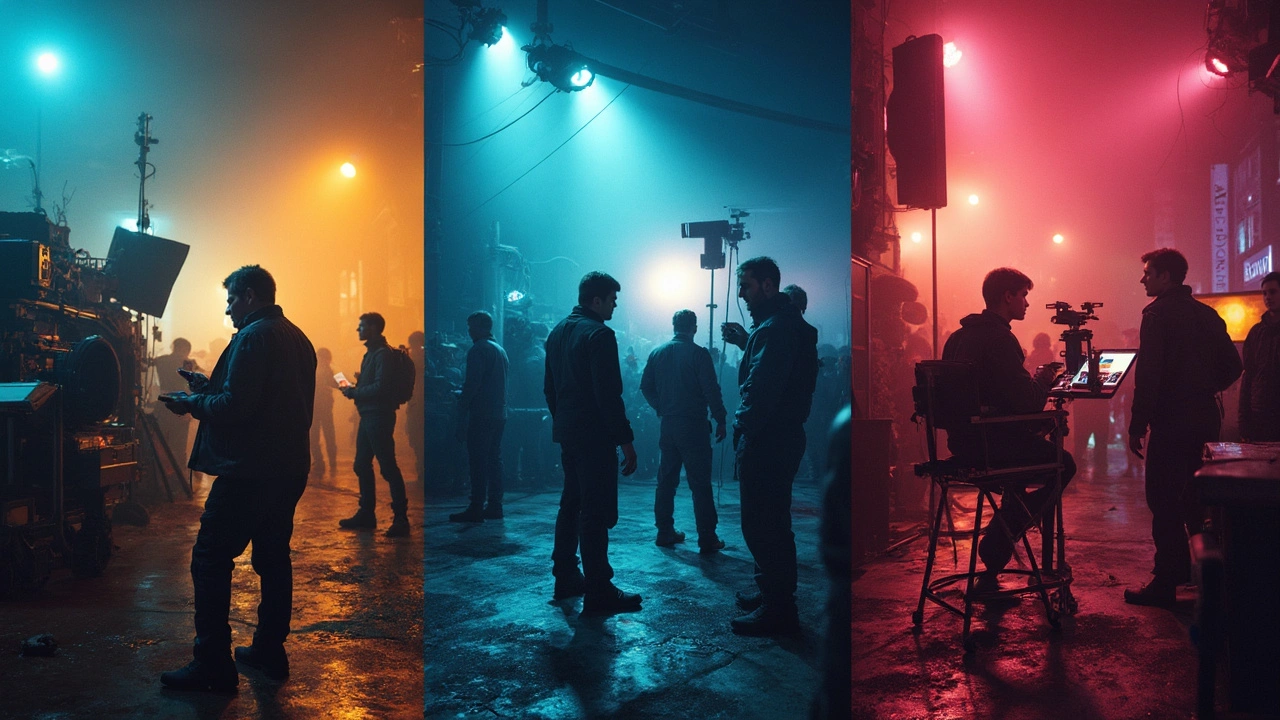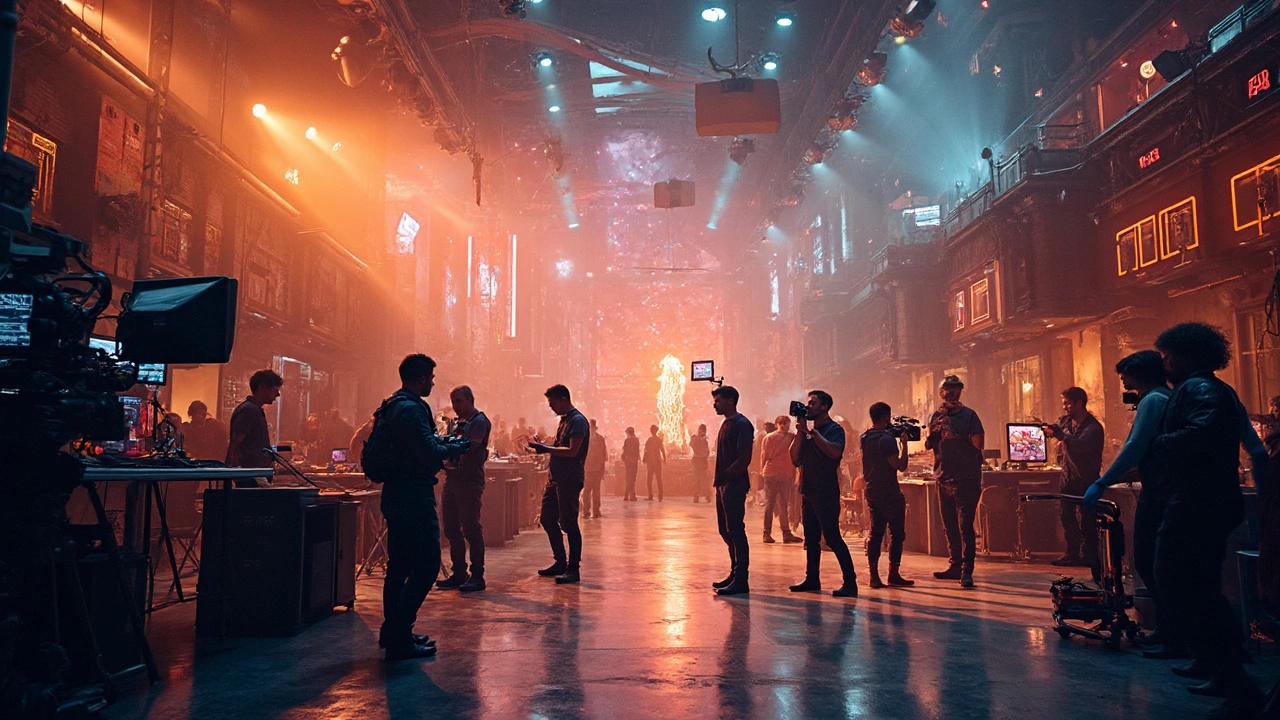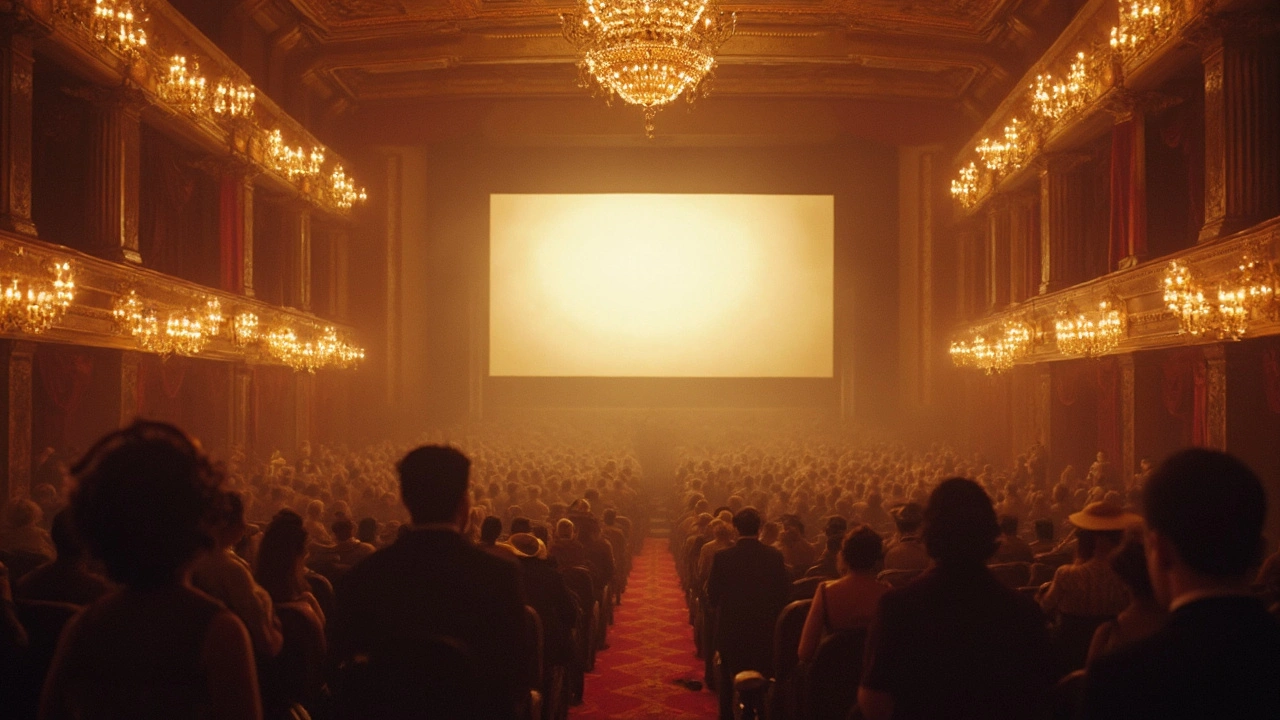Ever watched a movie and thought, "Wow, that was something else?" You're not alone. We all have that one film we believe is a masterpiece. But what really makes a movie stand out above the rest?
Start with the story. A compelling story with relatable characters and a unique plot tends to grab and hold the viewers' attention. Think about films like "The Shawshank Redemption" or "Pulp Fiction"—they don't just tell a story; they take you on a journey, with unexpected twists and unforgettable dialogues.
Then, there are performances. The right cast can elevate a good script to greatness. Can you imagine "Forrest Gump" without Tom Hanks? Great performances make characters come alive, making us root for them or sometimes even despise them, all because of how convincingly actors play their roles.
- The Role of Story and Screenplay
- Impact of Performances and Casting
- Director’s Vision and Creativity
- Innovative Technical Elements
- Cultural and Genre Influence
The Role of Story and Screenplay
At the heart of every film masterpiece lies a gripping story, one that resonates on an emotional or intellectual level. It's what transforms a simple narrative into an unforgettable journey. So, what's the secret sauce?
Storytelling That Captivates
A powerful story doesn't always mean complicated. In fact, simplicity often reigns supreme. Look at films like "Jaws"—a straightforward tale about a killer shark. What made it soar was the tension and pacing. Great stories often have relatable themes, whether it's overcoming adversity, finding love, or battling inner demons. They tap into universal emotions.
Screenplay Magic
The screenplay not only lays out the plot but also defines characters, dialogue, and pace. A film like "The Godfather" is remembered for its rich characters and iconic lines—courtesy of a brilliant screenplay. A strong screenplay is like a well-crafted map, guiding everything from performances to direction.
Visual Storytelling
Visual cues can be as powerful as dialogue. A scene can speak volumes with a mere glance or a well-timed pause. Movies like "La La Land" use color palettes and choreography to tell their stories visually. These elements enhance the screenplay, creating layers for the viewers to explore.
Balancing Act
A great screenplay balances show and tell. It keeps audiences engaged, leaving enough to the imagination. The film "Inception" cleverly uses its screenplay to weave intricate layers of dreams, keeping viewers on the edge of their seats.
Let's take a quick peek at some remarks about classic screenplays:
| Film | Remarkable Element |
|---|---|
| Casablanca | Memorable Dialogue |
| Chinatown | Complex Plot |
| Citizen Kane | Innovative Narrative Structure |
Ultimately, a fantastic screenplay is the backbone of cinematic excellence. It's where all aspects of film come together, setting the stage for a potential masterpiece. When done right, it becomes a blueprint for greatness, inviting audiences to dive into unforgettable worlds.
Impact of Performances and Casting
You've got your film masterpieces, and one thing they often have in common is top-notch performances. A film might have a solid story, but if the acting falls flat, it's likely to miss the mark. It’s all about bringing characters to life in a way the audience can connect to. When actors nail their roles, it becomes unforgettable, making these films stand out in the realm of cinematic excellence.
Iconic Casting Choices
Expectations soar when you hear about iconic casting decisions. It’s hard to think about "The Godfather" without Marlon Brando or "Silence of the Lambs" without Anthony Hopkins. These casting choices hit the bullseye, turning potentially good narratives into legendary stories.
But what really goes into a great casting decision? It's not just about big names. It's about finding the right fit. Sometimes surprising picks end up being perfect. Remember Heath Ledger as the Joker? Initially criticized, his performance became legendary, earning him posthumous acclaim.
The Power of Chemistry
Chemistry between actors can make or break a movie. Take "Pulp Fiction" for example—John Travolta and Samuel L. Jackson's on-screen dynamic is electric, creating memorable moments with every scene. This chemistry doesn't always come naturally; it often requires effort and good direction. When it clicks, it’s magic.
Stats Table: Acting Accolades
| Film | Lead Actor Accolades | Year |
|---|---|---|
| "The Godfather" | Marlon Brando, Oscar and BAFTA Winner | 1972 |
| "The Dark Knight" | Heath Ledger, Oscar and Golden Globe Winner | 2008 |
| "La La Land" | Emma Stone, Oscar and Golden Globe Winner | 2016 |
These examples show how critical casting and performances are to a film’s success. They elevate stories, create everlasting impressions, and in the end, can define a film as a masterpiece. So next time you’re engrossed in a movie, take a moment to appreciate the actors, the casting magic, and the lasting impact they might have made on cinema history.

Director’s Vision and Creativity
When it comes to creating a film masterpiece, the director holds the wand, orchestrating everything from the script to the final cut. The director's vision is crucial, shaping how the audience experiences the film. Consider the legendary Stanley Kubrick, known for his unique style and attention to detail. Each frame in his movies feels like a painting, meticulously crafted to evoke a particular emotion or concept. That's no accident—it’s a director at work.
Bringing Innovation to the Screen
Innovation is a big part of a director’s job. Take Christopher Nolan, for example. He's brought us unforgettable films like "Inception" and "Interstellar," using mind-bending plots and visual techniques to challenge storytelling norms. These films captivate the audience, not just with their stories but through the sheer creativity in delivery. So, it's no surprise that Nolan's work often gets highlighted in discussions around iconic film genres.
"A director makes only one movie in his life. Then he breaks it into pieces and makes it again." – Jean Renoir
Balancing Vision with Reality
A director must also balance their artistic vision with practical constraints like budget and time. James Cameron, while making "Titanic," faced numerous challenges—yet his commitment to storytelling and innovative use of technology resulted in a film masterpiece. It reminds us that even the grandest vision needs a bit of flexibility.
In terms of stats, remember that the director's influence is evident in film ratings. A study of IMDB's top 250 movies showed that 80% were helmed by directors with a distinctive style, underscoring the vital role of the director’s vision in producing unforgettable films.
Innovative Technical Elements
Think about what makes film masterpieces truly stand out. Sure, great storytelling and acting play a part, but what also sets a masterpiece apart is how it's crafted technically. From bold camera work to groundbreaking special effects, technical brilliance can transform a simple story into an epic experience.
Avant-garde Cinematography
Cinematography is like the brushstrokes in a painting. Directors and cinematographers, like Roger Deakins and Emmanuel Lubezki, have redefined how we experience films. With techniques like seamless long takes and dynamic camera angles, they immerse us into the world on screen. Movies like "Birdman" wowed audiences with its continuous-shot illusion, making viewers feel as if they were part of the action.
Revolutionary Special Effects
Remember when "Avatar" hit the theaters? It wasn't just a film; it was a visual spectacle. James Cameron's vision, coupled with state-of-the-art 3D technology, raised the bar for special effects. Such innovation enhances storytelling, allowing filmmakers to create entire universes that wouldn't have been possible just a decade ago.
Sound Design and Editing
Sound might not be the first thing you think of, but it's crucial. It's not just about dialogue; it's also about the ambiance and auditory cues that set the mood. The eerie silence in "A Quiet Place" showed how sound design can drive suspense and keep audiences on the edge of their seats.
| Film | Technical Innovation |
|---|---|
| Gravity | Realistic zero-gravity effects using a "light box" chamber |
| The Matrix | Pioneered 'bullet time' visual effects |
Technical elements in film genres are constantly evolving, pushing the boundaries of what's possible. The folks behind the scenes are just as important as those in front of the camera in making a film unforgettable. Whether it's an innovative camera technique, eye-popping effects, or immersive sound, these elements are the backbone of a film's magic.

Cultural and Genre Influence
Alright, let's dive into how the culture and film genres shape what we call a flick masterpiece. The truth is, no film is created in vacuum, and the cultural backdrop often plays a huge role in how a movie is perceived. A film like "Parasite" doesn't just win accolades because of its twists or thrills; it provides a lens into class disparity in South Korea. This cultural resonance is part of the brilliance that pushed it into the spotlight.
Now, why does the genre matter so much? Well, genres set audiences up with certain expectations. Horror films, for instance, need to scare the pants off you in creative ways, while rom-coms should leave you with all the feels. A film becomes a masterpiece in its genre by meeting—and often smashing—those expectations. Remember "The Godfather"? It's the gold standard of crime dramas. It did something unique for its time and set the bar for everything else that followed.
Crossover Impact
Sometimes, a great film taps into multiple genres, expanding its reach. Think about "The Dark Knight", which combines action, drama, and even a bit of the crime genre. It isn't just a superhero movie; it's a fantastical mix of themes that appeals to a broad audience.
Speaking of reach, cultural influence extends further than you might think. Take a look at foreign films becoming popular in Hollywood, sharing diverse storytelling and different cultural perspectives. These films offer fresh ideas into genres that might feel overdone in our local context.
Genre Stats
| Genre | Box Office Hits (Worldwide) |
|---|---|
| Superhero | $23 billion+ |
| Action | $12 billion+ |
| Drama | $6 billion+ |
These numbers tell us something, don't they? Film genres have their top dogs, but the unexpected treasures often come from how they blend culture and creative storytelling. Understanding this can help us appreciate why some films permanently etch themselves as masterpieces, striking a chord across different backgrounds.

